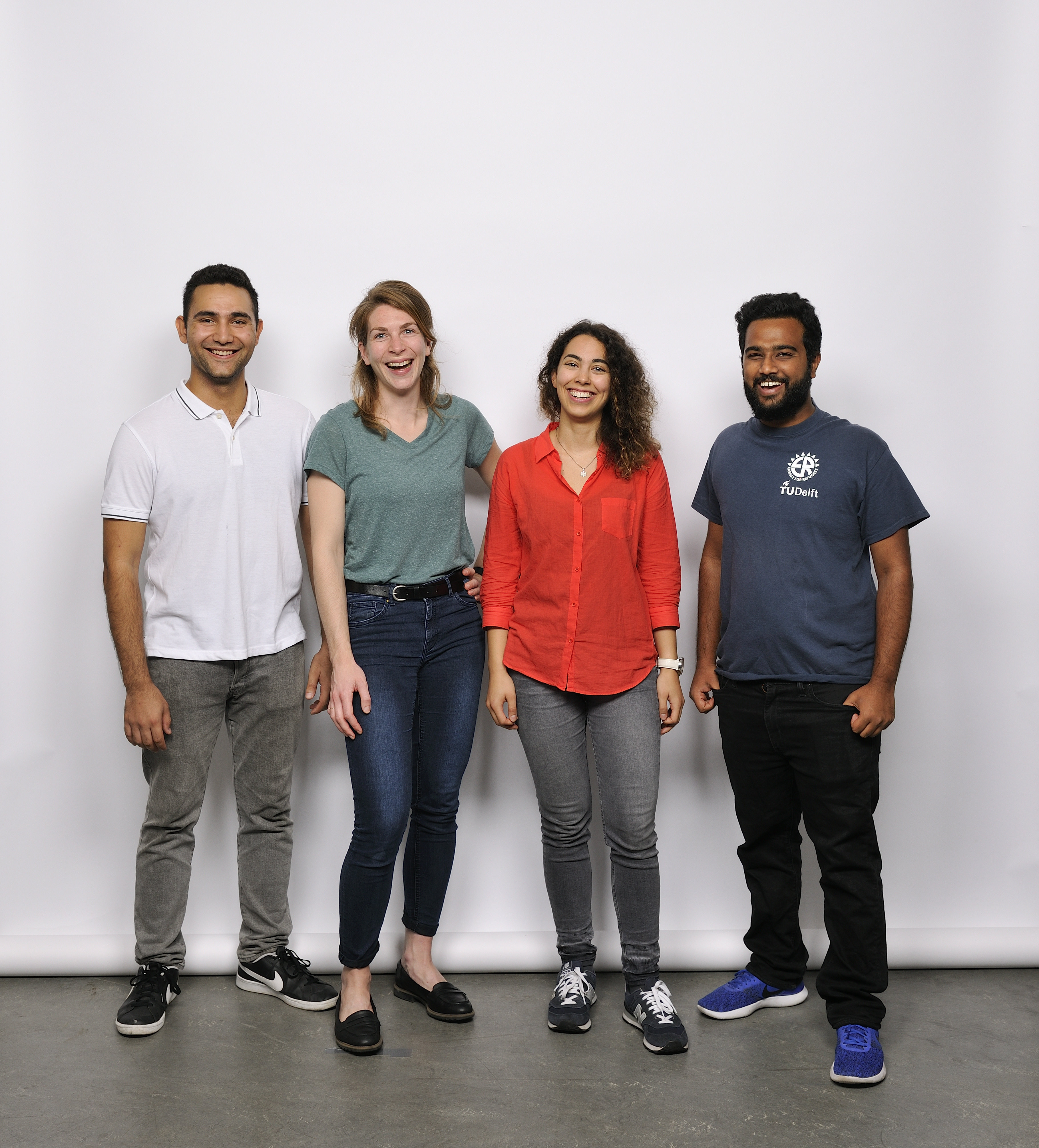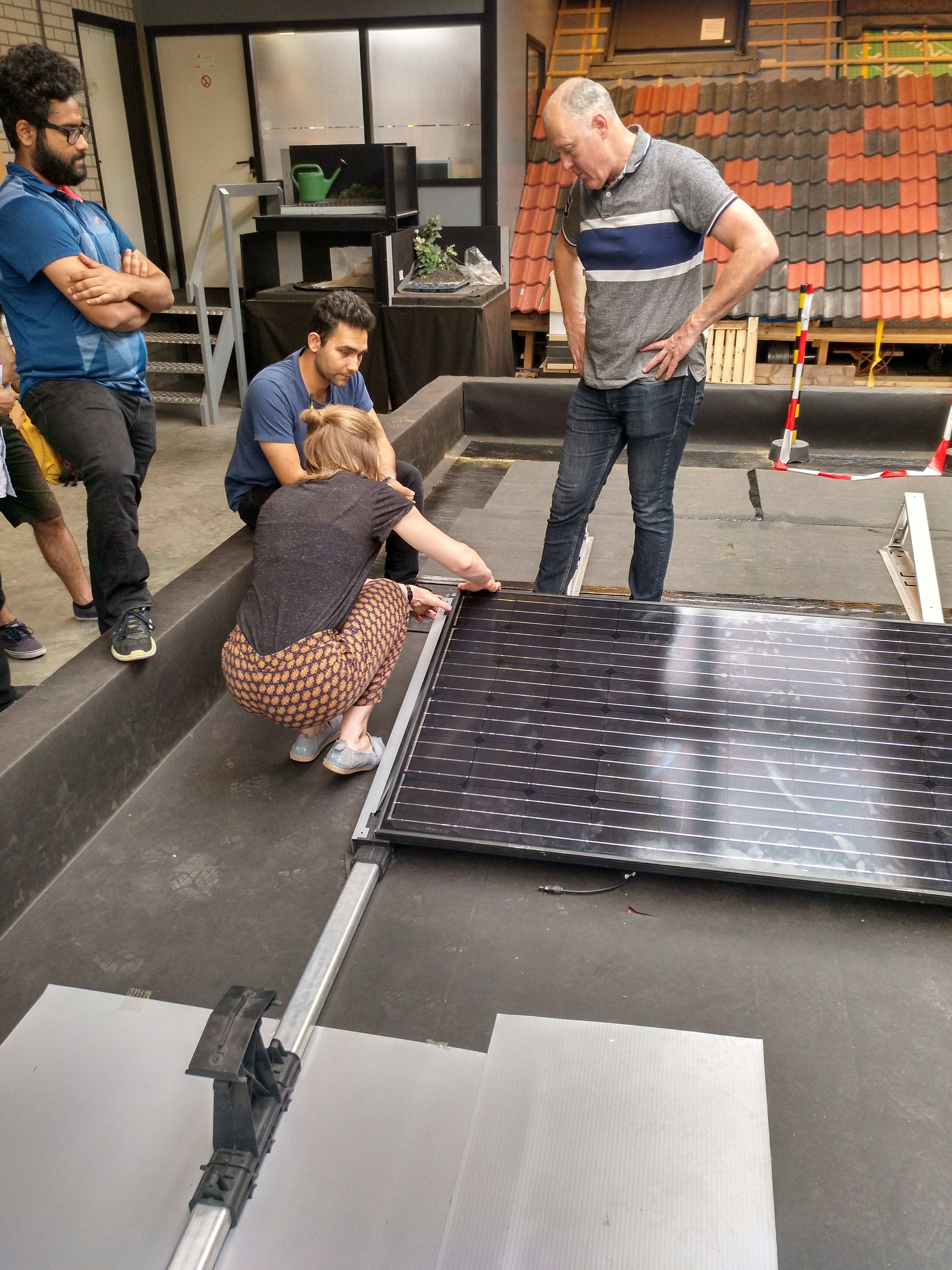Solar power for asylum seekers
It is still happening every day: vulnerable asylum seekers making the dangerous journey to Europe in ramshackle boats filled to overflowing. Their hope is to exchange poverty, hunger and violent conflict for a peaceful existence. Many of them, however, do not succeed, ending up in refugee camps. These are often grim places, where not everyone can take basic needs for granted. The TU Delft Energy Club decided to do something about this and so put together a team: Energy for Refugees (EfR). Seven EFR members, all of them international students doing their Master's in Construction, Civil Engineering and Sustainable Energy Technology, travelled to Lesbos in the summer of 2018 to set up self-reliant energy production at one of the camps there. It proved to be an extraordinary journey.
A flying start
An autonomous camp, less reliant on third parties - and if at all possible, with the help of solar power. This was the objective that Anurag, Manolis, Shivam, Karthik, Roos, Gamze and María set themselves at the start of their adventure. A goal that apparently not every refugee camp was in a position to work towards. The fact is that many camps are governed by stringent regulations or are heavily guarded because of rioting. Nevertheless, EfR managed to make contact with the Pikpa refugee camp on the Greek island of Lesbos where about 120 people, mainly women and children, live.
The EfR team drew up a list of the needs of the camp, made a technical design for a sustainable energy system, and launched a crowdfunding effort to get money and materials. The interest the students managed to generate in the project soon bore fruit. Solar panel manufacturer EXASUN based in The Hague donated 40 solar panels. What's more, this was all achieved while the team was still in the Netherlands and had not yet set a foot in Greece.
Setback after setback
The following months, though, were overshadowed by uncertainty. Heavy fighting broke out in the Moira refugee camp and this meant that a state of emergency was also declared in neighbouring Pikpa. Another setback was of a more procedural nature. The failure to secure a permit meant that it became too risky to keep to the original plan for the construction of a PV system connected to the grid. It was decided that in its place a system would be constructed using panels and converters independent of the electricity grid: an off-grid system.
As soon as the seven students had decided on this change of focus, they again got depressing news. ‘Pikpa Threatened with Closure’ screamed the headlines in the Greek press and on websites. Inspections were said to have identified various shortcomings, especially around food and hygiene. Suddenly, Pikpa was in the spotlight of the local authorities: it was a problem which could not be ignored.
Kare Tepe as alternative
On Monday 9 July 2018, the EfR team flew from Amsterdam to Athens and travelled on to Lesbos. During a short tour of the Pikpa camp, it quickly became clear that setting up solar panels there was not an option. Everything and everyone was under close scrutiny and this meant that any unusual activity could be pounced upon to justify closing the camp down. An alternative camp was found: Kara Tepe, about 15 kilometres north of Pikpa. Despite adopting this plan B, a lot of time had been lost; there were only five days left in which to set up the PV system so it was ready for use. Still, with the help of refugees with technical backgrounds, the EfR team managed to put the system in place in the digital learning centre of Kare Tepe.
Since the off-grid system was installed, the camp can have a back-up power source in times of power cuts due to an overloaded grid. While it is true that their adventure ended in a race against time, this did not stop the EfR team being bitten by the bug: a new team wants to go to Greece again in 2019 to bring sustainable energy to another camp.
This year, the EfR-students are teaming up with two NGOs that have been doing great work to guarantee access to shelter and sanitary conditions in the Olive Groove Camp in Lesvos, Greece. While these NGOs already have access to electricity, they rely on Diesel generators which are a source of pollution and create a big economic burden for the organizations. With your support, EfR will replace the dependency of these generators with solar panels. In order to get this great job done, money is needed. This is why a crowdfunding campaign will start soon. More information will be available on the following website: https://www.energyforrefugees.com/
The Faculty of Electrical Engineering, Mathematics and Computer Science (EEMCS) helped fund this project. Would you like to read more about the project? You can! Just go to this link to read a more detailed report of the EfR team's work.


